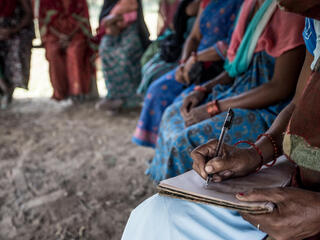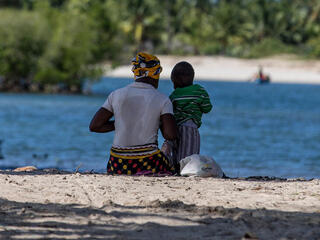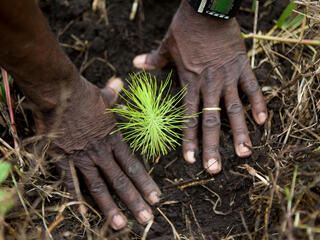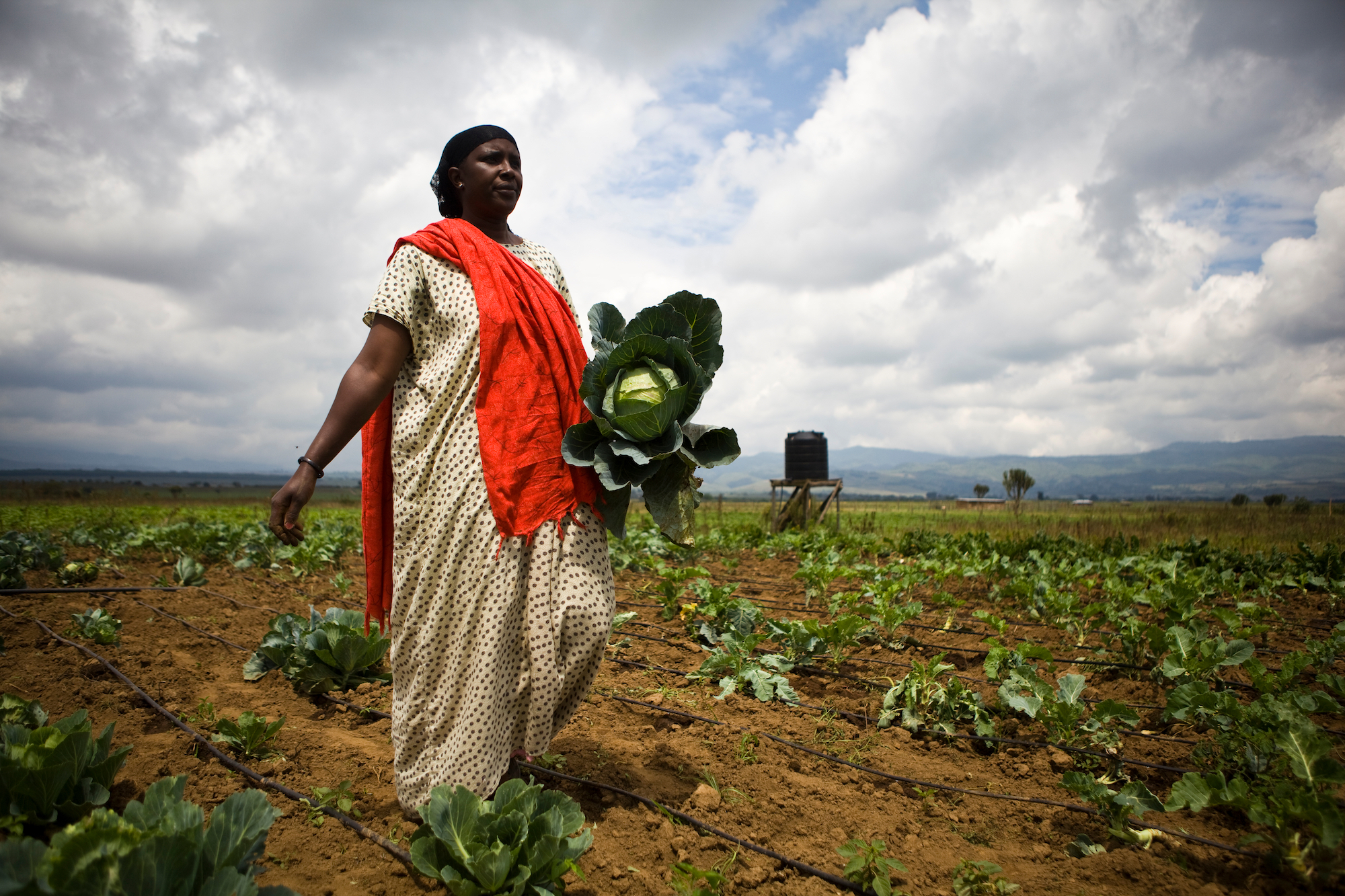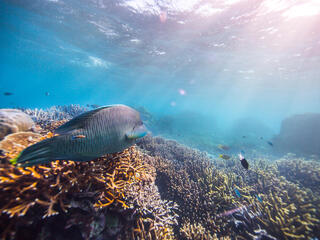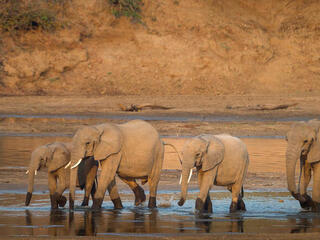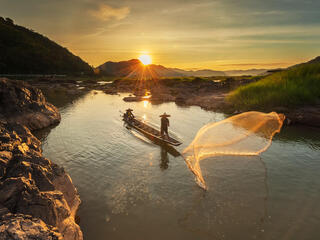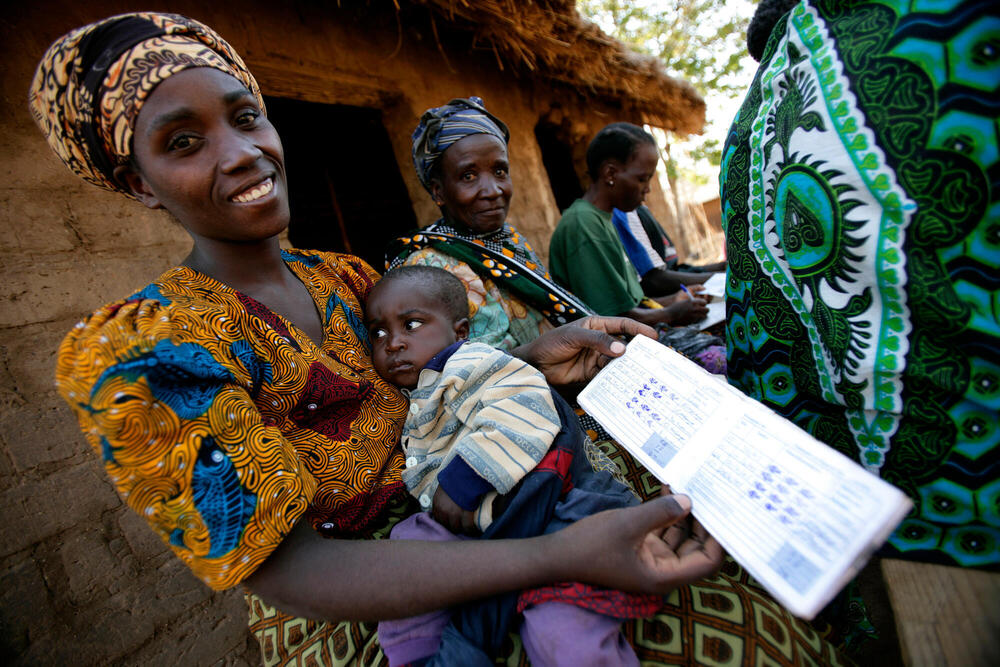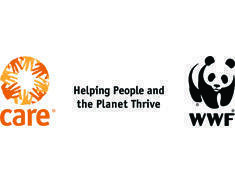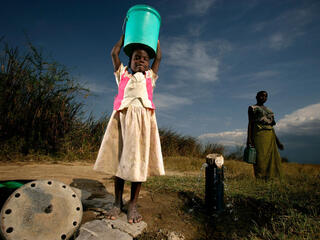About the Alliance
WWF offers over 60 years of collaborating with people worldwide to develop and deliver innovative solutions that protect critical ecosystems and the communities who rely on them.
CARE brings more than 75 years of experience working side-by-side with communities around the world—with a particular focus on building women’s agency—to foster innovative, sustainable, locally complex causes of poverty and gender inequality.
The CARE-WWF Alliance was formed in 2008 to tackle complex global challenges that require a diverse range of experience and expertise. The Alliance works at the intersection of climate change solutions and gender equity, strengthening the power and determination of women in areas disproportionately impacted by the climate crisis.
The Alliance brings together WWF’s conservation and restoration expertise; CARE’s gender equality, nutrition, and livelihood development expertise; both organizations’ combined expertise in climate change adaptation; and their joint presence in more than 40 countries.
Vision:
A world where thriving communities are the architects of their own future, in which resilient ecosystems drive green growth and wellbeing for all.
Mission:
To unleash the power and resilience of women, communities, and ecosystems to enable current and future generations to thrive.
Guiding principals:
- Environmental conservation and human wellbeing are linked and must be addressed in an integrated approach
- Alliance programming will add value and maximize synergies in the delivery of each institution's mission
- Alliance programming will strengthen the agency of women and their communities and strengthen local capacity and ownership to increase resilience and sustainability in crucial ecosystems
- Alliance programming will take a rights-based approach to addressing social and environmental justice
The Alliance in Action
The CARE-WWF Alliance is active throughout the network of both organizations -- implementing, partnering, convening and sharing in areas of the world that are hard hit by climate change, where one or both institutions have an active presence or have established local partners.
Climate change is a universal problem, yet impacts are diverse and optimal local solutions are unique to each community and region. While always grounded in the mission to work through and support the power and resilience of local women and their communities, the Alliance is flexible in its approach based on local circumstances and existing programming.
To date, four distinct programs illustrate the Alliance’s diverse approach:
Mozambique: Primeiras and Segundas Archipiélago (2008-2018)
Following the official launch in 2008, the CARE-WWF Alliance began working on its first programming area: the Primeiras and Segundas Archipelago off the coast of Northern Mozambique. The archipelago is one of the world's most biodiverse ecosystems, yet pressures from climate change, unsustainable fishing practices, and mangrove destruction were putting immense stress on the ecosystem and people of the region. The program's work focused on:
- Promoting resilient agriculture to increase yields and income in the face of climate change.
- Enabling local communities to manage forests, fisheries, and other natural resources more sustainably.
- Improving the financial literacy of the most vulnerable, particularly women, through village savings and loan associations that improve savings practices and increase access to credit.
Nepal: Hariyo Ban (2011-2021)
The Alliance's second programming project took place in Nepal, lasting from 2011-2021. Located at the juncture of the Indian subcontinent and Asia proper, forests comprise over 44% of Nepal's land mass, and the country boasts over 23% as an officially designated protected area. However, with 23.8% of the nation living below the poverty line, Nepal's natural beauty and resources are threatened by haphazard infrastructure development, a gross overuse of natural resources, and continuing threats from climate shocks. Facing these challenges, the CARE-WWF Alliance began the Hariyo Ban Program, named after the famous Nepali saying 'Hariyo Ban Nepal ko Dhan' (healthy green forests are the wealth of Nepal) with the following key priorities.
- Conserve Nepal’s forests and its wildlife.
- Accelerate ecological and community resistance to climate change by empowering vulnerable women and communities.
- Improve natural resources management and reduce.
Tanzania: Nachingwea (2015-2019)
Nachingwea's miombo forest is near the Selous, one of Africa's largest and most threatened forest reserves. It is part of a vital woodland network that houses some of Africa's largest elephant herds. Unfortunately, the miombo forest is also subject to illegal logging and poaching activities due to high poverty rates. Because the communities surrounding the forest rely on it for food, shelter, and income, the Alliance centered its work around four main outcomes:
- community-based conservation organizations demonstrating more equitable access to and sustainable management of miombo forest
- women smallholder farmers adopting climate-smart agriculture practices on their farms
- local communities engaging in diversified, sustainable livelihood activities
- local communities, especially women, demonstrating a greater ability to hold duty bearers accountable for decisions that affect ecosystems.
Tanzania: Southern Agricultural Growth Corridor (2015- ongoing)
The Southern Agricultural Growth Corridor of Tanzania program is a public-private partnership initiated by the Tanzanian government to encourage increased investment in agricultural growth in a way that is both environmentally sustainable and inclusive of small producers. The CARE-WWF Alliance brings value to the partnership by drawing on CARE’s deep expertise in improving markets for vulnerable smallholders and WWF’s extensive experience helping companies green their supply chains.
- Extend informal savings groups and collective access to financial services to 5,000 farming families (22,500 individuals), especially women.
- Increase sustainable investment and production to improve small-scale farmer income by 60% and food security by 20%.
- Improve ecosystem resilience and functions in production landscapes in Ndembera sub-catchment of the Great Ruaha River.
- Strengthen public and private partnerships to improve small-scale producer access to extension, inputs, markets, financial services, and benefits from ecosystem services
The Alliance is also involved in several global programs that include WWF and CARE in a wider partnership collaboration. The Alliance contributes to these programs in a variety of ways, including conducting research, convening partners, and generating and disseminating learning. The programs currently include:
The Alliance serves as a resource and thought leader for both organizations to strengthen programming within the environmental stewardship and human development sectors. These activities include:
- Facilitating strategic partnerships and collaboration between CARE and WWF offices throughout the world.
- Identifying potential funding opportunities for a range of activities and programs.
- Providing technical support in program design and fundraising.
- Developing, supporting and scaling innovative solutions and emerging models.
- Supporting project management to ensure technical quality.
- Developing partnerships with global organizations, universities and other research organizations.
- Representing the Alliance at global conferences and communities of practice to share lessons learned and encourage similar programming.
- Assisting in advocacy efforts for policies at all levels that advance equitable conservation and development.
Why it Matters
Women and climate change are inextricably linked.
As the climate crisis grows, women and girls are disproportionately impacted. Yet women are also proven to be powerful changemakers, at the center of successful climate change mitigation and adaptation strategies.
Global temperatures are rising rapidly, and so are the risks to the world’s most vulnerable communities and ecosystems.
- The effects of climate change – more intense and more frequent extreme heat, droughts, floods, and storms -- have doubled since the early 1990s.
- These extreme events harm agricultural productivity and contribute to shortfalls in food availability and income losses, which reduce people’s access to food.
- The degradation of natural forests has serious impacts around the world, including increasing biodiversity loss, accelerating greenhouse gas emissions, reducing water regulation, and reducing forests’ abilities to serve as a source of food and goods to sustain local livelihoods.
- Ecosystems are rapidly changing in response to climate change and other global change drivers, not only in response to temperature changes but also associated changes in precipitation, atmospheric carbon dioxide concentration, water balance, ocean chemistry, and the frequency and magnitude of extreme events.
Women and girls withstand the worst of the burden from climate disasters.
- Many women rely on agriculture as their primary source of income, but with growing incidents of climate-related soil degradation, unpredictable rainfall, and displacement, their economic and social stability is threatened.
- Recovery after a climate disaster is more difficult for women, who face discrimination in accessing land, financial services, social capital, and technology.
- In places that lack reliable access to electricity or running water, women are largely responsible for collecting water and fuel for households. Climate change increases the time required for these activities, which in turn increases womens’ and girls’ exposure to gender-based violence and makes it harder for women to pursue other activities such as education or income generation, thereby perpetuating cycles of poverty and decreasing human security.
Just as women and girls are inextricably linked to the impacts of climate change, they are also a critical part of the solution.
- Women are often the keepers of key knowledge about natural resource management in their communities.
- Recent studies indicate that when women engage in natural resource management and gain access to leadership positions, conservation outcomes and climate change policies improve.
- Countries that have scored higher on an index measuring women’s well-being are also found to be better positioned to address climate change.
“As the group most affected by climate change, women have a better understanding of what needs to be done to adapt to changing environmental conditions, protect the environment, and come up with practical solutions to problems introduced by climate change. But restricted land rights, lack of access to financial resources, training and technology, as well as limited access to political decision-making spheres often prevent them from playing a full role in tackling climate change and other environmental challenges.
Unleashing the knowledge and capability of women thus represents an important opportunity to craft effective climate change solutions for the benefit of all and increase the efficiency of conservation efforts.”
Ellen Johnson Sirleaf
Former President of Liberia
Sowing Change
Why focus on women? Women are changemakers. As the water gatherers, food producers, and stewards of natural resources, women have intimate insight into the real effects of our changing climate. When equipped with the proper knowledge, resources, and opportunities, they will restore, regenerate, and re-envision how communities mitigate and adapt to climate change, while helping their families adapt along the way.
Why nature-based solutions? Nature-based solutions have the potential to contribute more than one-third of the total mitigation needed to keep climate change at bay.
Vision:
Women worldwide lead their communities in developing nature-based solutions that support landscape restoration, build the green growth economy, increase climate change resilience, and become part of a global climate movement.
Locations:
Sowing Change will create regional impact with pilots in two to three countries that share landscapes and challenges. The initiative will strengthen the expertise of and co-create with local implementing partners that bring contextual knowledge and trusted relationships
with communities.
Sowing Change will begin in eastern and southern Africa (Kenya, Tanzania, and Zambia) in 2023, followed by other regions of the world in the following years.
Timeline
2022-2023
Launch a pilot program in one geographic region.
2024-2025
Partner on the ground to ensure enabling conditions and expand program in one country and launch in a second country.
2026-2027
Scale up program in one country, adapting the program to local needs and lessons we gained during the initial launch.
2028-2030
Scale up in second country, building initiative momentum for further replication.
With Sowing Change, CARE-WWF Alliance takes an important step in aligning nature and people in the pursuit of solutions to restore our planet. Solutions that start small, adapt to localized learning, and expand to nearly all regions across the globe.
For more information on Sowing Change and how you can be part of this global movement, contact Cheryl Margoluis, Executive Director, CARE-WWF Alliance.

